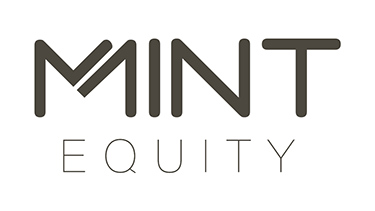Essentially, APRA is trying to slow investor growth and the exposure of lenders to investment loans.
APRA takes a look at each lender’s loan book to see what ratio is exposed to investment loans, and they have implemented a limit.
This means, some lenders need to pull back how much they lend to property investors. And they do that by making it less attractive for investors to borrow from them.
Which banks are making changes to their investment loan interest rates?
CBA
CBA are increasing their Variable Rate for new and existing Investment Home Loans by 27 basis points (0.27%) effective from Monday 10 August 2015.
They are also increasing their Fixed Rates for new Investment Home Loans effective from Friday 31 July 2015.
The 1 Year Fixed Rate is increasing by 0.30% to 4.79% p.a.
The 2 Year Fixed Rate is increasing by 0.40% to 4.89% p.a.
The 3 Year Fixed Rate is increasing by 0.40% to 4.89% p.a.
The 4 Year Fixed Rate is increasing by 0.30% to 4.99% p.a.
The 5 Year Fixed Rate is increasing by 0.10% to 4.89% p.a.
he 1 Year Guaranteed Rate is increasing by 0.30% to 4.79% p.a.
The new investment Standard Variable Rate will be 5.72% per annum.
NAB
National Australia Bank will increase variable interest rates on interest-only home loans and line of credit facilities by 29 basis points.
For new loans, NAB’s interest only variable rate changes will be effective 10 August 2015.The change for existing interest only variable rate loans will be effective 10 September 2015. Additionally, changes to NAB’s fixed rate interest only loans will be effective 10 August 2015. Changes to NAB’s line of credit loans will be effective 10 September 2015.
ANZ
ANZ will increase fixed rates for investors. One-year, two-year, three-year and five-year fixed rates for investors will all increase by 30 basis points, taking its one-year rate to 4.94 per cent, its two-year and five-year rates to 5.04 per cent, and its three-year rate to 5.14 per cent.
ING Direct
ING Direct have announced changes to their investment loans effective from 31 July 2015. We’ll provide more details once we have the new interest rates.
Macquarie Bank
Macquarie Bank have announced changes to their investment loans effective from 31 July 2015. We’ll provide more details once we have the new interest rates.
AMP
AMP Bank has put new applications for investor property loans on hold. AMP will also increase the variable interest rate across all its existing investor property loans by 0.47%. They are expected to keep investor lending on hold until later in 2015.
Suncorp
Suncorp Bank will increase its standard variable, Back to Basics and Access Equity/ line of credit rates for new and existing investor loans by up to 27 basis points, effective 31 August.
The changes mean Suncorp’s Investment Standard Variable Rate and Access Equity Reference Rate will start at 5.81 per cent, while its Investment Back to Basics Variable Rate will start at 5.23 per cent.
Bank of Queensland (BOQ)
Bank of Queensland (BOQ) will increase its standard variable rate for residentially secured investor home loans by 29 basis points, effective from 10 August.
Westpac
Westpac’s fixed rates on investor home loans will increase, rising by up to 30 basis points, while fixed rates for owner-occupiers will decrease by the same margin. Both of these changes will come into effect from 4 August 2015.
It’s not just interest rates that are changing
Some lenders are changing the way they calculate loan servicing, which has a greater impact than interest rate increases for those who own their own home and are looking to buy an investment property.
For example, CBA will apply a new servicing loading of 20% to all repayments on existing Investment Home Loan and Lines of Credit. That means when the bank assesses your capacity to repay the loan, they’ll calculate your home loan repayments on principal and interest over the remaining term, regardless of the actual payments being interest only, then add an additional 20%.
It doesn’t mean you have to pay more in mortgage repayments, it just means you need to prove you have the capacity to pay 20% more. This makes the bank more comfortable that if things go pear shaped, you’ve got fat in your budget to continue with your repayments.
Essentially, your borrowing capacity will be much less than it was prior to the changes.
How can investors get competitive interest rates and conditions?
With interest rate changes and servicing nuances varying from lender to lender a mortgage broker is even more important for investors. And mortgage brokers need to work even harder than ever before. Securing a competitive interest rate shouldn’t be the driving factor for investors. Serviceability is going to play a bigger part in getting approval, and only mortgage brokers have visibility across all lender policies.
Investors need to move quickly and secure pre-approved loans so they can lock in the existing rates and policies before they change in future.
How can a mortgage broker help investors?
Investment home loans are becoming more and more complex with the APRA changes and go beyond just an interest rate comparison. A mortgage broker can reduce the application process by advising buyers of the most current interest rates, serviceability and policy requirements of multiple lenders that will work for their situation. Often we’ll run a client’s scenario through the bank to test their appetite before an application form is even completed by the buyer. This means our investors reduce their chances of having their application declined and their credit score taking multiple hits for multiple applications.
In addition to saving investors time and energy, our services are free of charge. We’re remunerated by the lender you choose.
Information updated 8pm 4 August 2015.


